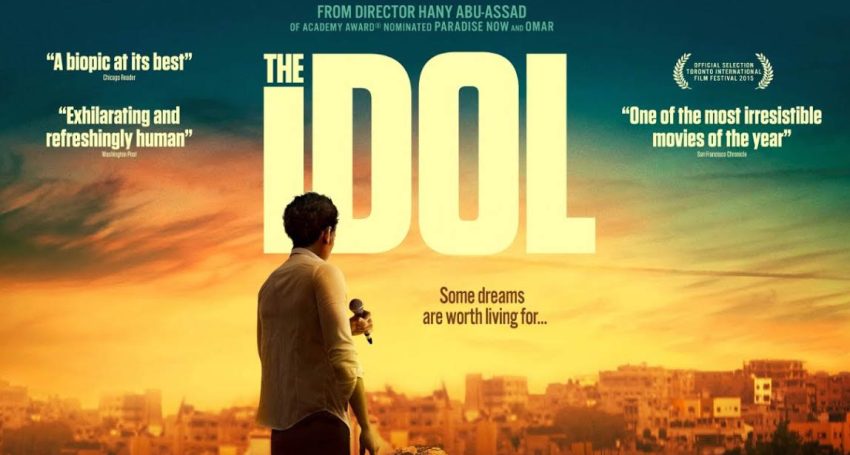The Idol
Films & TV
“The Idol tells the story of how Mohammad Assaf travelled from the Khan Yunis refugee camp in Palestine’s Gaza strip to the Arab Idol competition in Beirut. Since the film is based on real life and the outcome is famously known, the artistic challenge for the filmmaker was to present the story in a fresh way that keeps the viewer engaged,” says The Rev’d Dr Greg Jenks, who is the former Dean of St George’s College, Jerusalem

During 2013 I spent five months in Israel and Palestine while on study leave. During that time many of my Palestinian friends were excited about the second season of the Arab Idol singing competition that was underway at the time. They were especially excited by the prospects of a talented and courageous young Palestinian singer from Gaza who was winning round after round and eventually made it to the finals. His musical prowess excited Palestinians across political factions and triggered an upsurge of national pride.
The Idol tells the story of how Mohammad Assaf travelled from the Khan Yunis refugee camp in Palestine’s Gaza strip to the Arab Idol competition in Beirut. Since the film is based on real life and the outcome is famously known, the artistic challenge for the filmmaker was to present the story in a fresh way that keeps the viewer engaged. Academy A ward nominated director Hany Abu-Assad achieved this with some deft cinematic devices, along with carefully crafted fictional elements to enhance the film experience.
The film begins in Gaza around 2005, when the young Mohammad is performing with his siblings and a couple of friends. Their homemade musical instruments are eventually upgraded with the acquisition of second-hand instruments from various sources. Once the adult Mohammad set his sights on performing in Arab Idol, the setting moves to Cairo and then finally to Beirut. However, the original context in Gaza is always in the narrative’s background, with scenes from the world’s largest open-air prison even in the film’s final moments.
Advertisement
Interestingly, the brutal Israeli occupation is not overtly mentioned even though the action unfolds among the ruins of buildings flattened by Israeli bombs and missiles. Similarly, the security fence that isolates Gaza’s population from the world is filmed, but there is never an Israeli soldier in the frame. Having walked through the ruins of the Mukataa in Ramallah, destroyed by Israeli bombing in 2002, I can verify the accuracy of the depiction.
This is not a film about Israeli brutality, although that harsh reality dominates the context and even the development of the plot, since the challenge for Mohammad is not so much the other competitors as surmounting Israel’s travel restrictions. While the occupation is omnipresent, it is somewhat muted. In this film the focus is on the power of the human spirit to achieve a goal that matters to the person, with the courageous human transcending the conflict.
The casting is realistic and effective. I recognised many Palestinian friends and neighbours in the characters of this film. This was reinforced by the Arabic dialogue that could be heard despite the English soundtrack, which was at times a rather loose rendering of the Arabic.
One of the minor themes in the film was the role of Islam in everyday life for the people of Gaza. Despite the local mainstream media’s often misrepresentation of Gaza as a hotbed of militancy, the film offers poignant glimpses of faith in daily life. In particular, the delight of a pious border official in a well-performed recitation of the Qur’an marks a critical moment in the storyline.
Advertisement
This is a film that touches upon so many aspects of humanity – a few dark while others largely positive. One of the key themes underscoring the film is compassion, and the capacity for small acts of kindness to enable hope and courage in another person.
The film screening that I attended was hosted by a Brisbane Amnesty International branch, so the presumed audience were people with a concern for human rights and political prisoners. However, this is a film that appeals to a much wider audience, and I am sure most readers of anglican focus will enjoy this dramatisation of a real-life human success story, as one person overcomes immense odds to achieve his dreams, and much more besides with Mohammad Assaf later becoming a United Nations Regional Youth Ambassador.
The Idol, rated M and directed by Hany Abu-Assad is currently viewable on SBS On Demand. The official trailer can be viewed on YouTube.





